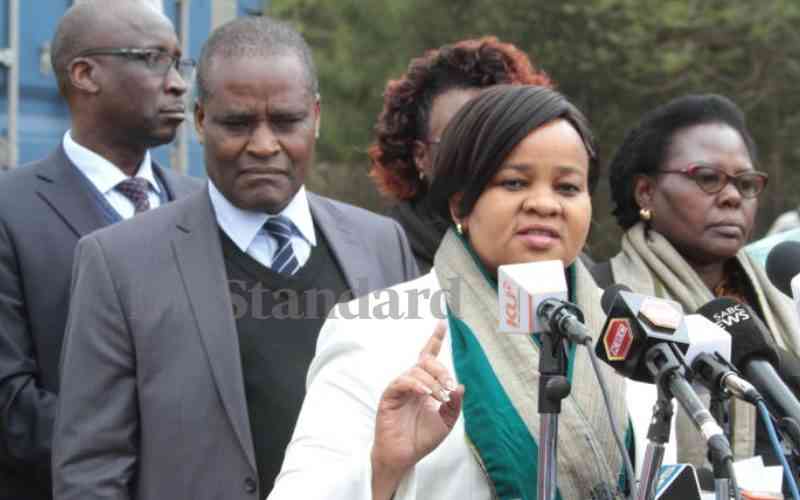×
The Standard e-Paper
Fearless, Trusted News

An audit of the electoral commission's register discovered 14 mysterious Returning Officers (ROs) who had been running the IEBC Integrated Database Management System (IDMS).
According to the detailed audit report by KPMG, the IEBC digital voters register had more than 2 million mysterious voters who used duplicate or fake documents to register. Some were registered twice in past elections.